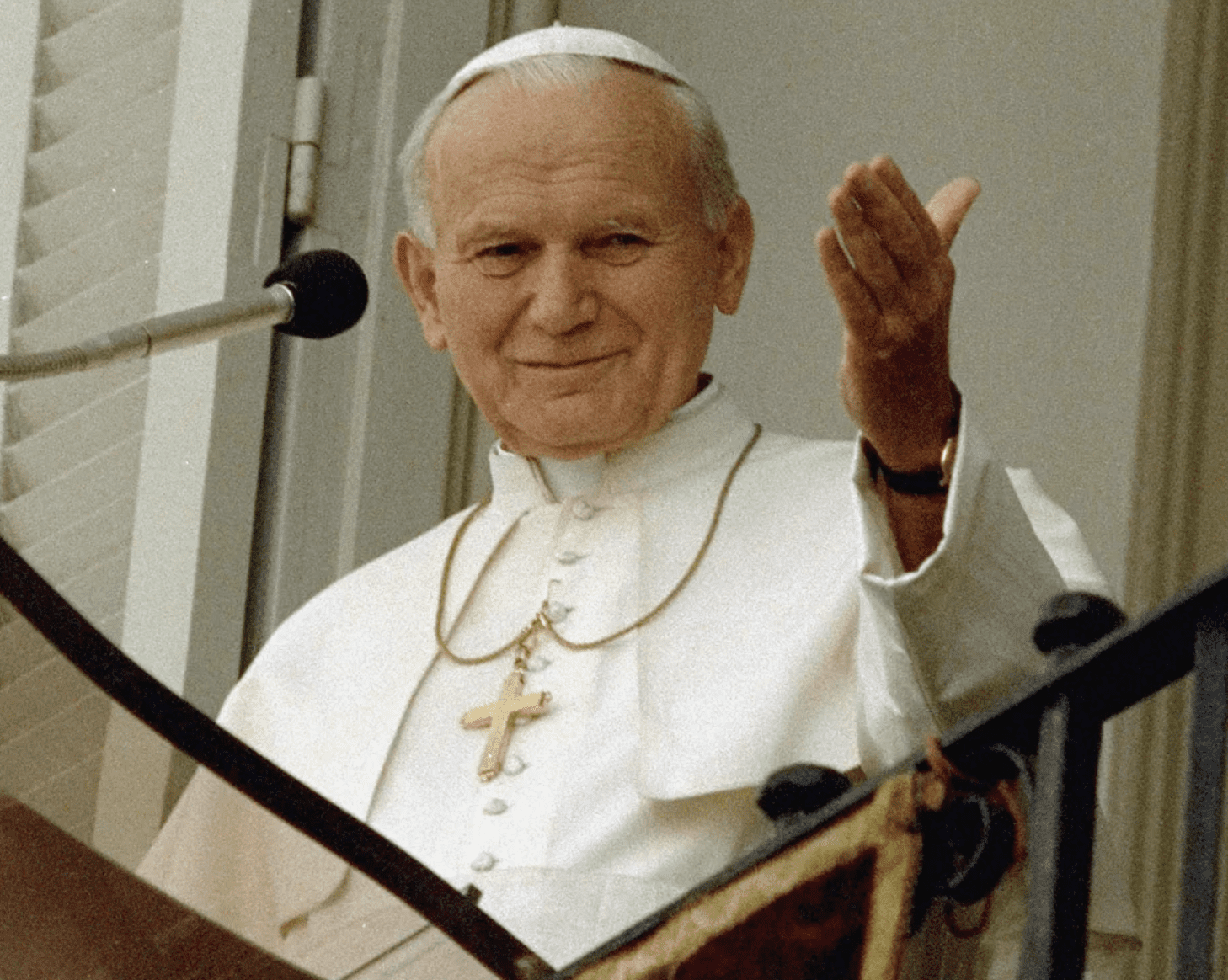Parliamentary elections in Poland will be held later this year. Few would have predicted that one of the earliest campaign issues would have involved Pope Saint John Paul II.
The late Pontiff’s name recently – and unexpectedly – became part of the current news cycle. This was due to two separate claims that he had covered up sexual abuse cases involving Catholic priests when he was Archbishop of Krakow.
Ekke Overbeek’s book, Maxima Culpa, and a TVN24 report by Marcin Gutowski, “Franciszkańska 3,” are at the heart of this controversy.
Overbeek, a Dutch journalist living in Poland, suggested John Paul II covered up and transferred at least two priests who were later convicted and imprisoned for sexual abuse of minors. “He was aware of the problem from the very beginning,” she told Reuters, “and that sheds a completely different light on his pontificate.” Gutowski, a television journalist, spoke with victims of priests from the 1960s who were subordinate to John Paul II when he was known as Cardinal Karol Wojtyla. “Among them are letters of the cardinal personally signed by him, which testify, leaving no doubt, how he acted as the Metropolitan of Krakow against abuses in the church and what he did with pedophile priests,” he told TVN24.
Poland has been up in arms ever since.
Thousands marched in several cities, including Warsaw, this past Sunday to protest what they perceive as false allegations. The Law and Justice Party (PiS) and its chairman, Jarosław Kaczyński, have strongly defended John Paul II as a hero of Poland, opponent of Communism and champion of freedom. The right-leaning government adopted a resolution in the Sejm, or lower parliament, “strongly condemning the disgraceful media campaign…against the Great Pope, Saint John Paul II, the most eminent Pole in all of history.”
Frustration has crossed ideological lines, too. Political scientist Michal Sutowski, who was described by France24 as being “associated with the left,” said John Paul II “is considered an icon of Polish identity and the attacks on this ‘great Pole’ are seen as attacks on the very essence of this identity.”
The Catholic media has also weighed in on this controversy. They’re none too impressed, as one might imagine.
Robert Mixa wrote in The Catholic World Report on April 2, “while many esteemed Polish journalists and historians have investigated the same archives as the documentary makers without finding evidence to accuse Wojtyła of wronging, the smear campaign of the Polish leftist news outlets continues on…the attempts to destroy Poland’s love for John Paul II have not worked. Many Poles have rushed to his defense, praying for his intercession in these trying times.” Meanwhile, Polish journalist Tomasz Rowiński made this assessment in Catholic Herald on April 4, “The factual deficiencies in their narratives are supported by both authors with categorical statements such as “we know without any doubt”, “it is more than circumstantial evidence,” “Wojtyla knew about the sexual abuse of priests and hid it in Poland before he became Pope”…beyond these declarations, there is nothing to indicate that this was the case. Historians of various political profiles have torn both the book and the film to shreds.”
What should we make of all this?
It’s indisputable that the Roman Catholic Church has dealt with the ignominy of sexual abuse cases involving children. Catholic priests, nuns and other religious figures have been accused, charged and jailed for these terrible crimes. The number of recorded instances, especially in the U.S., has been a source of embarrassment for the Vatican.
The two recent attempts to rewrite history and point blame at John Paul II are highly questionable, however.
John Paul II spoke out on numerous occasions against priests having sexual relations with minors. Mary Ann Walsh’s John Paul II: A Light for the World, Essays and Reflections on the Papacy of John Paul II (2003) contained this notable line by the Pontiff, “there is no place in the priesthood and religious life for those who would harm the young.” In a 2004 Vatican study on sex abuse, the Pope’s April 30, 2001 letter issued motu proprio (on his own initiative) was included. The letter stated it’s a “sin against the Sixth Commandment of the Decalogue by a cleric with a minor under 18 years of age is to be considered a more grave delict, or ‘delictum gravius.’”
You can discuss, debate and argue why he made these lines until you’re blue in the face. His position and comments were consistent, and remained consistent until he took his final breath.
Columnists, journalists and analysts, both Catholic and non-Catholic, have also read the massive amount of papers and materials that’s linked some Church officials to the sexual abuse cases. These individuals came from different walks of life, and had ideas and opinions that didn’t necessarily mesh with the Catholic Church. Yet, as Mixa, Rowiński and others correctly noted, there’s been absolutely no evidence linking John Paul II to any sort of a historical cover-up or hush campaign.
If Overbeek and Gutowski used these exact same sources, how could they have both found something unique that didn’t raise a red flag for virtually everyone else?
Many Poles would also like to know this answer. It would help protect Pope Saint John Paul II’s name and legacy, and ensure the forthcoming Polish election tackles real issues instead of faux controversies.
Michael Taube, a long-time newspaper columnist and political commentator, was a speechwriter for former Canadian prime minister Stephen Harper.






